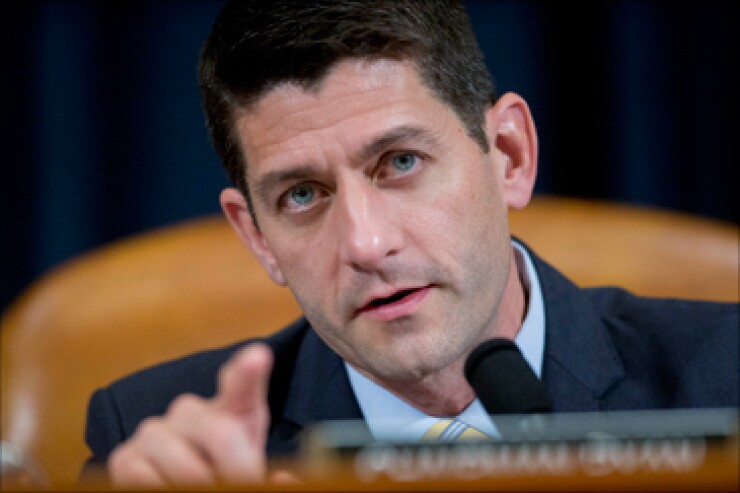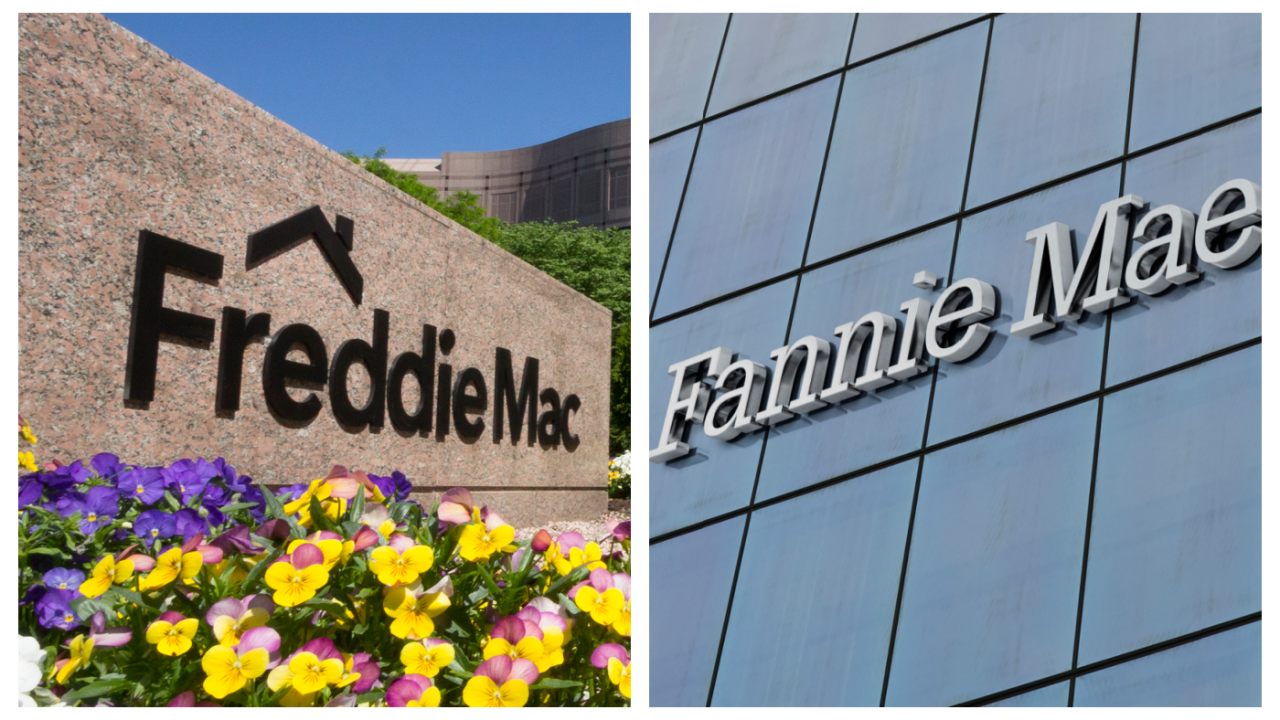
WASHINGTON – Rep. Paul Ryan’s expected rise to House Speaker this week may ultimately prove a boon for the banking industry – especially for critics of the Dodd-Frank Act and the current mortgage finance system.
The Wisconsin Republican, the former vice presidential candidate to Mitt Romney and a longtime member of the House, agreed to take the role of Speaker last week, likely providing some needed stability after weeks of surprises for the Republican party.
Speaker John Boehner announced last month that he would leave Congress and make way for a new leader. His would-be successor, Majority Leader Kevin McCarthy, then abruptly backed out of the race for the top job.
Though Ryan was at first hesitant to step up, he’s seen by many as a central player to help mend the fractured Republican Party.
Below we answer some frequently asked questions about Ryan and what his impact will be on the banking industry should he secure the speaker role. The House Republican Conference will take its vote on the chamber’s top position on Wednesday, with the full House slated to approve the decision on Thursday.
What is Ryan’s leadership style?
Observers have largely praised Ryan, who joined Congress in 1999, as both sharp and pragmatic. Still, the lawmaker has never served in a senior leadership position beyond stints as chairman of the Budget Committee and now Ways and Means, raising questions about how he’ll guide the party still grappling with core ideological rifts.
“Paul Ryan is a very smart, ideologically conservative member of Congress with a practical streak,” said Brian Gardner, an analyst with Keefe, Bruyette & Woods.
Working in his favor, there’s likely to be “a bit of a honeymoon, a little more cohesion in the caucus,” in coming months, as lawmakers give Ryan some breathing room to get up speed in the position, said Mark Calabria, director of financial regulation studies at the Cato Institute.
Going forward, however, the bigger question is how he defines himself after the 2016 elections on banking issues and broader policy concerns.
“Assuming Republicans hold the House in 2016, how is he going to shepherd through financial services legislation in 2017 and beyond? And how will he interact with a new president, whether it’s a Republican or a Democrat?” said Gardner. “I don’t think we know just yet. But I think for the next 14 months, we’re not going to see significant shifts in policy, nor a significant shift in style.”
How has Ryan weighed in on financial services issues?
Ryan’s positions on key banking issues have largely been in line with that of fellow conservatives up to this point, perhaps in part due to his time on the Financial Services Committee during his first term in Congress.
While he voted for the Troubled Asset Relief Program in 2008, he’s since criticized the program, later calling it “crony capitalism at its worst." He’s also been dutifully critical of the Dodd-Frank Act, which he voted against, calling it “
Ryan has also repeatedly called for restrictions on the Federal Deposit Insurance Corp.’s bailout authority under Title II of Dodd-Frank in his annual budgets.
“Although the bill is dubbed ‘Wall Street Reform,’ it actually intensifies the problem of too-big-to-fail by giving large, interconnected financial institutions advantages that small firms will not enjoy,” the
Last year’s budget proposal, which Ryan authored, includes language that supports ending the Consumer Financial Protection Bureau’s direct funding from the Federal Reserve. The agency would instead have to go through the congressional appropriations process, a move Republicans have backed for years but which critics warn could gut the agency.
Ryan has also reportedly suggested to banks that he’d back a plan to reduce the tax burden on community banks as part of more comprehensive reform.
The Wisconsin Republican “is a big proponent of tax reform and as part of any tax reform, he was very interested in having equal tax treatment for equal entities and business operations – and in that light, providing some balance between tax exempt credit unions and taxpaying community banks,” said Paul Merski, executive vice president of congressional relations and chief economist at the Independent Community Bankers of America.
What about mortgage finance?
Ryan has long backed housing reform, including calling for changes at Fannie Mae and Freddie Mac years before they went into conservatorship. Indeed, a Fannie lobbyist
More recently, Ryan has pushed for winding down the government-sponsored enterprises. His 2014 budget “recommends putting an end to corporate subsidies and taxpayer bailouts in housing finance.”
“It envisions the eventual elimination of Fannie Mae and Freddie Mac, winding down their government guarantee and ending taxpayer subsidies. In the interim, this resolution envisions removing distortions to allow an influx of private capital and advancing various measures that would bring transparency and accountability to these two government-sponsored enterprises,” the proposal adds, then mentioning a bill by Rep. Jeb Hensarling, R-Texas, chairman of the Financial Services Committee, that calls for ending the GSEs over five years and moving towards a largely private market.
What’s his relationship with Hensarling?
Observers predicted that Ryan will likely give the head of the Financial Services Committee latitude to develop his own agenda and bring financial services legislation to the floor.
The two are both wonky by nature, with shared interests on budget issues, and Hensarling has already backed Ryan’s bid for speaker.
“They certainly both share the same outlook on the long-term budget situation,” said Calabria. “I think they’ve got a way to talk to each other that makes sense – there’s some bridges there.”
Going forward, that working relationship may help Ryan communicate and cut deals with Hensarling, as needed.
“I think he’s going to give Hensarling free rein, but he’s also not going to be afraid to pull him aside and say, the conference is here and you’re there, can we get something through?” said Brandon Barford, a partner at Beacon Policy Advisors.
Neither lawmaker responded to requests for comment on this story.
Does he have a fundraising relationship with Wall Street?
Despite hailing from Wisconsin, the conservative lawmaker has already built a fairly strong relationship with power centers in New York.
Ryan has raised $5.4 million over the course of his career from the financial services, real estate and insurance sector – the most from any single sector, according to the Center for Responsive Politics. (That includes money from PACs and individuals working in the sector, along with their immediate families). In the 2014 election cycle alone, Ryan raised $2.2 million from the banking industry through his campaign committee and leadership PAC.
Commercial banks have given over half a million dollars to Ryan since he took office in 1999 – and top financial donors over the course of his career include Northwestern Mutual, the National Association of Home Builders, the National Association of Insurance & Financial Advisors, Credit Suisse, Assurant, the National Association of Realtors and the American Bankers Association. Citigroup, Bank of America and UBS were among his top 20 donors in the 2014 election cycle.





